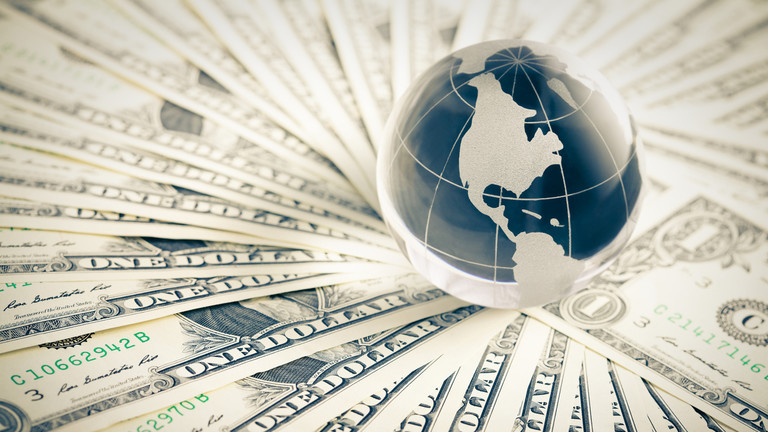The Democratic Party could get handled in the upcoming midterm elections if oil prices shoot back up
Last Wednesday, the OPEC+ group announced that it will cut oil production by 2 million barrels per day, citing the “uncertainty that surrounds the global economic and oil market outlooks.” The move will likely see fuel prices in countries like the US soaring back to highs from earlier this year – and the White House is reportedly irate over the decision.
From OPEC+’s perspective, they’re clear that oil-consuming countries shouldn’t be making demands from their suppliers. They’re also upset about the G7-proposed cap on Russian oil, which would set a poor precedent for oil-producing countries and their ability to flourish in the market. And finally, they’re also ticked about the US ramping up competition with them by tapping into the country’s strategic oil reserves to ease domestic fuel prices.
Apparently, the angriest of the cartel’s countries was Saudi Arabia, as the state-owned Aramco company announced on Thursday that it would lower oil prices for Europe, keep them the same for Asia, but raise them again for the US. This was a huge snub – yet again – for the White House after it accused OPEC+ of “siding with Russia” in its decision to slash oil production.

US hits out at OPEC over ‘unwise’ decision
We learned through a scoop obtained by the Wall Street Journal on Wednesday that the administration of US President Joe Biden is planning to ease sanctions on Venezuela to have American companies pump more oil out of the country and into the international market. In exchange for sanctions relief, Venezuelan President Nicolas Maduro would agree to hold talks with his country’s battered opposition and hold an election in 2024.
Taken together, it seems that the Biden administration is so desperate for oil that it’s reaching out to a country that it has tried for years to politically destabilize and overthrow. And it’s not even clear how much oil a deal with Caracas could yield. Venezuela reportedly has the highest confirmed oil deposits in the world, but lack of access to the proper machinery means that the oil is stuck in the ground. So why is Biden actually this desperate?
Well, simply put, it’s about politics. There’s this old saying in the United States that people vote with their wallets. One of the most recognizable costs for existence in America is automobile fuel prices. If those go up, many folks’ immediate knee-jerk reaction is to blame the president. It happens all the time. With crucial midterm elections coming up this November that will decide the future of his presidency, the Biden administration wants to avoid damaging his Democratic Party in any way.
As of October 7, FiveThirtyEight’s election model shows that Democrats are slightly favored to win the Senate, and Republicans are slightly favored to win the House of Representatives. Losing either chamber would mean Biden’s legislative agenda, which has already been lackluster compared to its ambitious sales pitches, will be dead in the water.

OPEC move balances ‘chaos that the Americans create’ – Kremlin
The site notes that there are even a few reasons to believe that Republicans can outperform this model, and additional polls that show Democrats ahead. For one, the fundamentals favor the GOP: Republicans tend to do well in midterm elections, Biden is unpopular, Americans are unhappy about the country’s direction, and Team Red has a structural advantage in the Senate. As well, issues that highlight Team Blue’s failures look to become more salient in the coming months, including gas prices.
It’s highly unlikely that the OPEC+ leaders didn’t know about the upcoming elections for Biden’s party that are so desperately important, which further suggests how angry they are with his administration. The message is clear: Stay out of our business or we’ll hit you where it hurts. But given the fact that the US is the largest arms dealer for most of the cartel’s countries, it’s quite a bold move for them to flex their might like this.
Of course, these countries probably also know that Biden is in no position to halt weapons supplies to their countries since it’s not really him that controls defense contractors, but rather the other way around. And that’s why we see the Biden administration acting so desperately, trying to find oil under any unturned stone – including by engaging with leaders the US has literally tried to murder for several years now.
Imagine that conversation. “Hey Nick, sorry we tried to kill you, would you mind sending us some oil? … No, really, it won’t happen again… You said, ‘Why don’t we go to talk to President Juan Guaido?’… Nick, come on, we need you here… You’re asking why we need your oil that bad? … Well… you see… we’ve got this election…”
It’s comedy that writes itself, frankly. Not only because of the haphazard rapprochement with Venezuela but also because people have been warning US leaders for years about being buddy-buddy with Saudi Arabia, a country waging genocide in Yemen and whose de facto leader personally ordered a US resident to get dismembered by hacksaws. We see now how that’s backfiring in the most epic fashion.
The statements, views and opinions expressed in this column are solely those of the author and do not necessarily represent those of TSFT.

 NEWS5 months ago
NEWS5 months ago
 NEWS5 months ago
NEWS5 months ago
 NEWS5 months ago
NEWS5 months ago
 WAR5 months ago
WAR5 months ago
 FINANCE5 months ago
FINANCE5 months ago
 INVESTMENTS5 months ago
INVESTMENTS5 months ago
 FINANCE5 months ago
FINANCE5 months ago




























